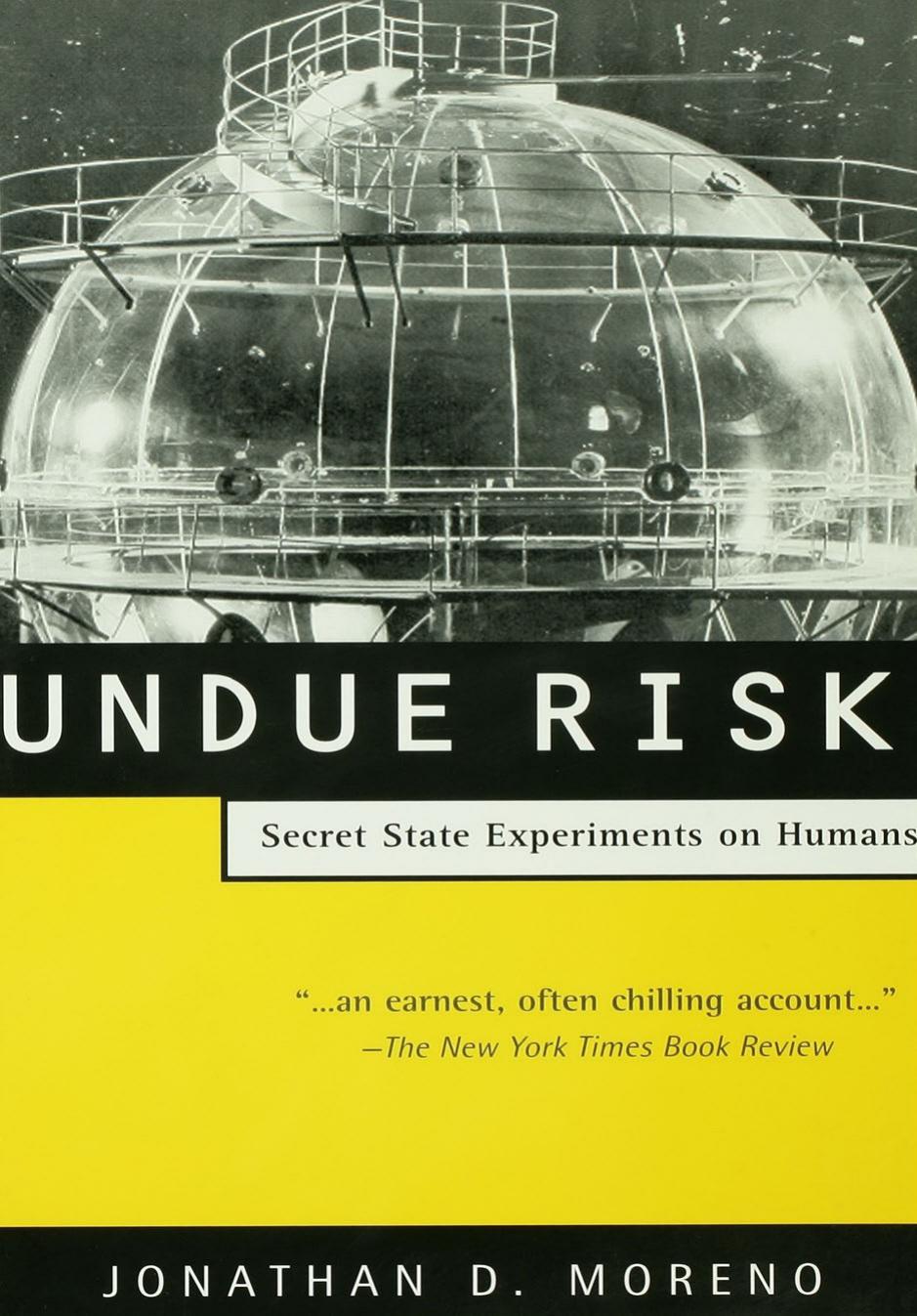Undue Risk by Moreno Jonathan D.;

Author:Moreno, Jonathan D.;
Language: eng
Format: epub, pdf
Publisher: Taylor and Francis
In what would prove to be the single greatest bureaucratic and philosophical problem with the Pentagon policy, the 1975 army report concluded that Operation Top Hat was probably thought to fall within the “line of duty” of a Chemical Corps exercise and was not regarded as an experiment. On the whole, the Army inspector general reported in 1975 that there had been a “startling … lack of consistency in the interpretations” of Secretary Wilson's policy, citing several other examples. The inspector general's report turned out to be a key document in the growing awareness of research ethics problems in the military during the 1970s, and we will meet up with it again later.
There were other obstacles to implementing the Wilson policy, including other problems about exactly what kind of studies it was meant for. A 1953 Army study examined soldiers' performance in cold environments and the effect of vitamin supplements on 128 personnel. The experiment proposal states that consent was solicited from the men, but it is not clear what they were told; no written consent form seems to have been used. The participants are called “selected volunteers” on page 2 of the memo. A specific unit was recommended for the test, but Puerto Rican and “Negro” personnel were excluded; no rationale was given. Perhaps the scientists excluded these groups from the study because of the widely accepted belief—which is now recognized as racially biased—that members of these minorities were significantly less able to withstand cold. Whatever the reasoning behind the exclusion, various Army officials signed off on the proposal.
Should this study have followed the rules set out in the secretary's memo? The study was not an atomic, biological, or chemical warfare experiment, but a nutritional study. Even so, it would seem odd not to apply the same ethical standards to a human experiment just because it happened to fall into a different scientific field. One could attribute the lapse to simple bureaucratic inertia, but there is at least one other partial explanation: the ethical rules based on Nuremberg were never really embraced by the military-medical establishment, never really penetrated that culture. Thus, unless it was specifically applied by top brass, the ethics policy was easily forgotten.
Or it was never known in the first place. The top-secret status of Wilson's original memo caused problems with communication of the policy to subordinates in the armed forces who actually had to implement it. A memorandum dated “3–5–54” from the acting chief of staff of the Air Force to the assistant secretary of defense (Health and Medicine) indicates that an Armed Forces Special Weapons Project technical report “mentions the fact that human volunteers were employed during atomic weapons tests conducted in 1951.” The memorandum continues:
Subsequent reports from later tests on the same subject contain comparable references as well as referring to at least two instances in which volunteers were injured as a consequence of taking part in field experiments. Because of the implications involved due to these injuries, it is felt that a definite need exists for guidance in the use of human volunteers as experimental subjects.
Download
This site does not store any files on its server. We only index and link to content provided by other sites. Please contact the content providers to delete copyright contents if any and email us, we'll remove relevant links or contents immediately.
| Anthropology | Archaeology |
| Philosophy | Politics & Government |
| Social Sciences | Sociology |
| Women's Studies |
Cecilia; Or, Memoirs of an Heiress — Volume 1 by Fanny Burney(32558)
The Great Music City by Andrea Baker(32018)
Cecilia; Or, Memoirs of an Heiress — Volume 2 by Fanny Burney(31956)
Cecilia; Or, Memoirs of an Heiress — Volume 3 by Fanny Burney(31941)
We're Going to Need More Wine by Gabrielle Union(19046)
All the Missing Girls by Megan Miranda(16026)
Pimp by Iceberg Slim(14506)
For the Love of Europe by Rick Steves(14121)
Bombshells: Glamour Girls of a Lifetime by Sullivan Steve(14073)
Talking to Strangers by Malcolm Gladwell(13370)
Norse Mythology by Gaiman Neil(13363)
Fifty Shades Freed by E L James(13239)
Mindhunter: Inside the FBI's Elite Serial Crime Unit by John E. Douglas & Mark Olshaker(9341)
Crazy Rich Asians by Kevin Kwan(9291)
The Lost Art of Listening by Michael P. Nichols(7506)
Enlightenment Now: The Case for Reason, Science, Humanism, and Progress by Steven Pinker(7313)
The Four Agreements by Don Miguel Ruiz(6765)
Bad Blood by John Carreyrou(6621)
Weapons of Math Destruction by Cathy O'Neil(6279)
